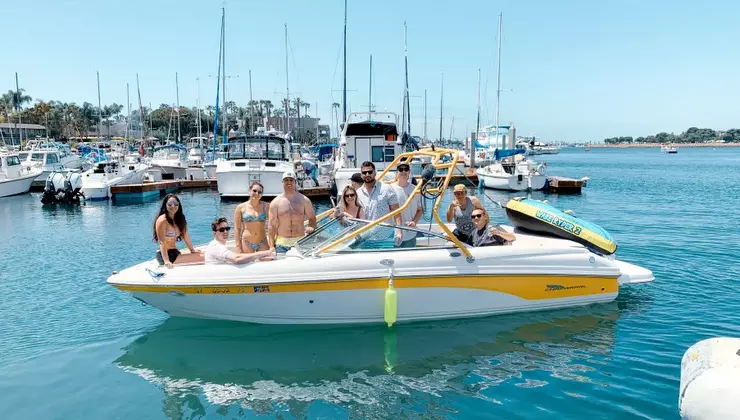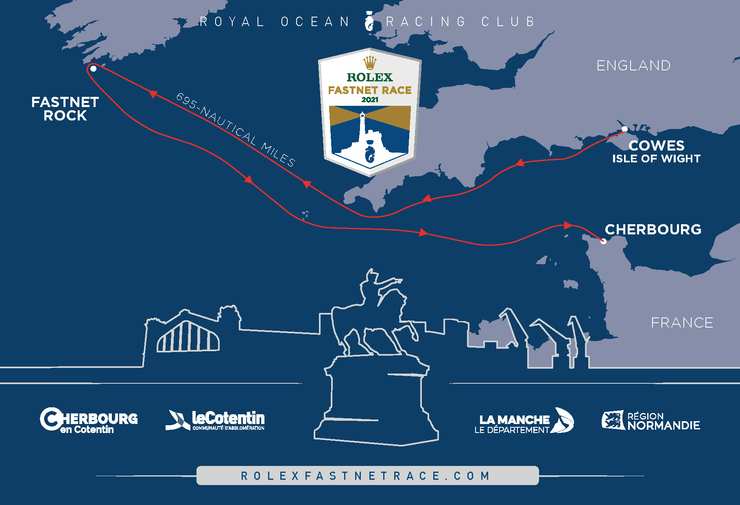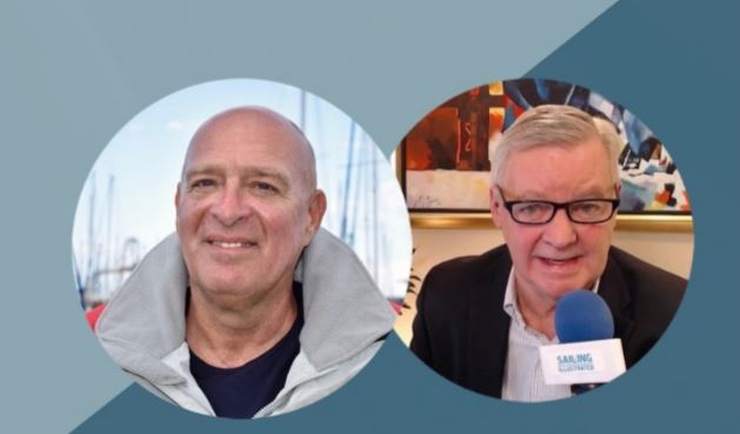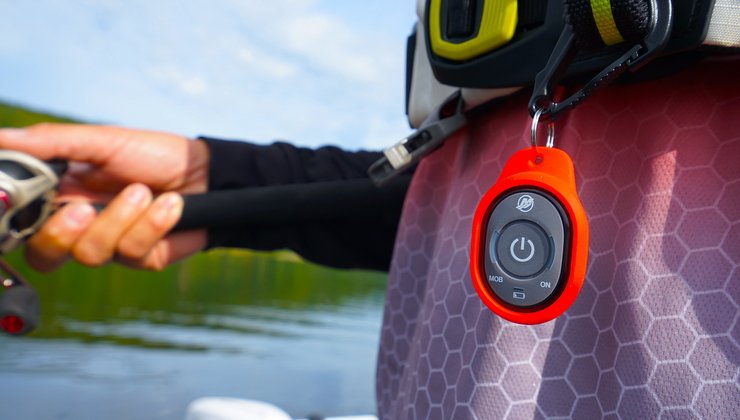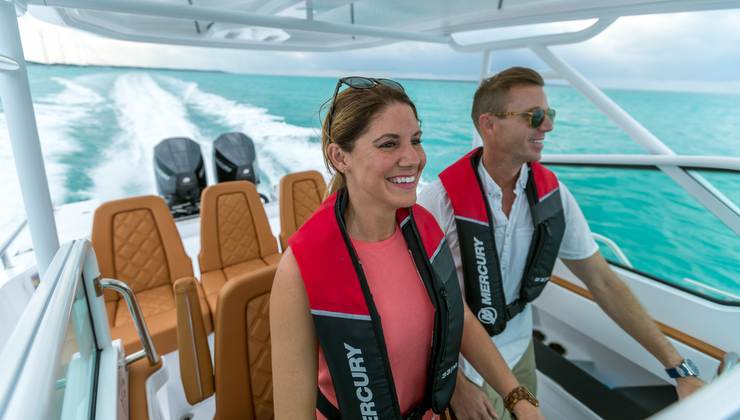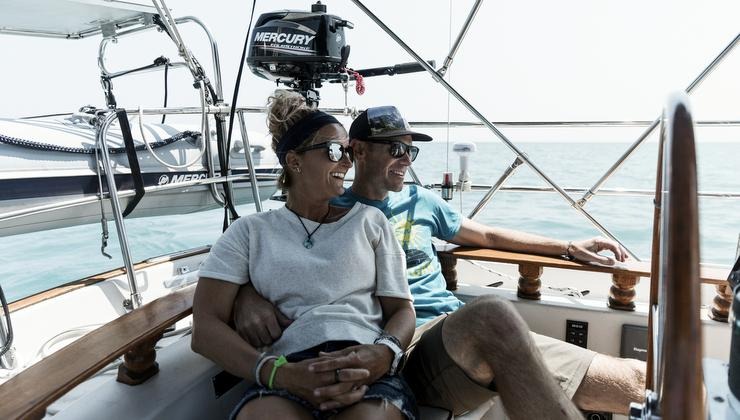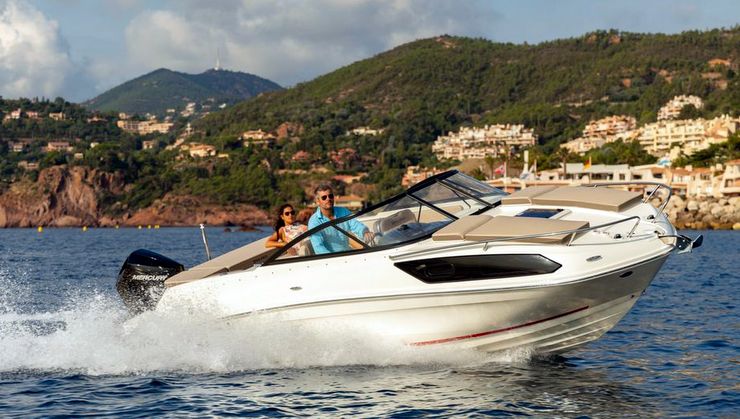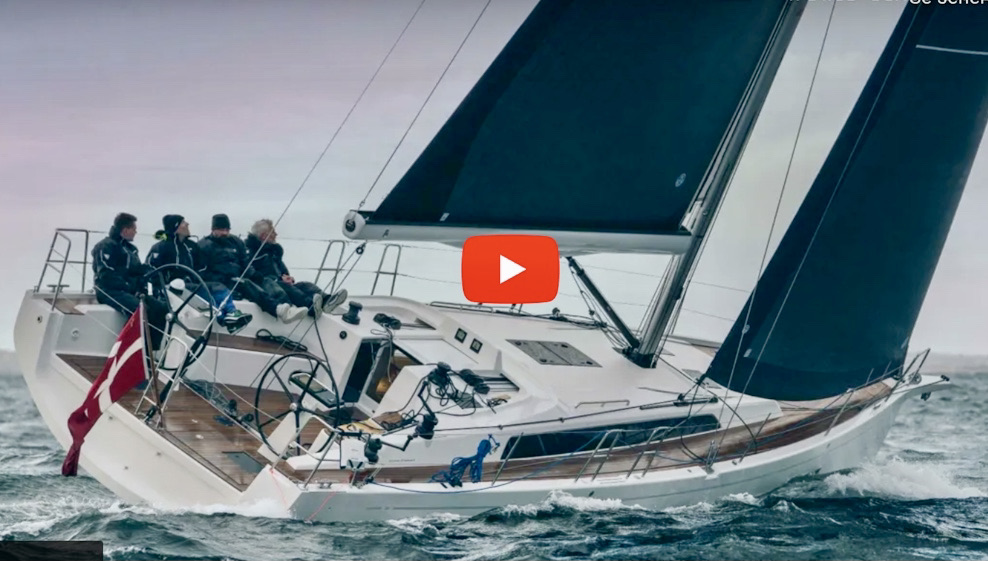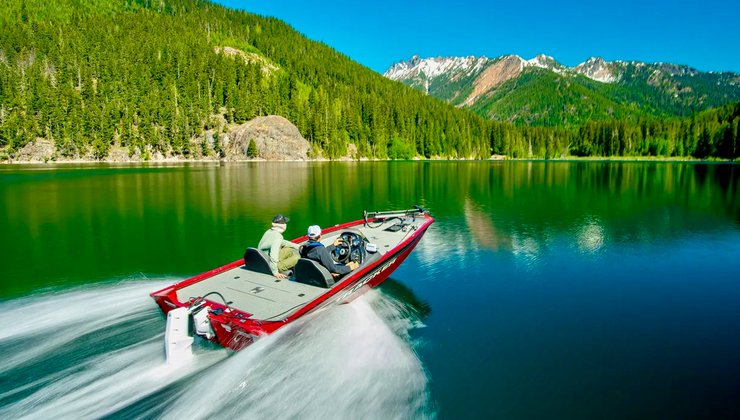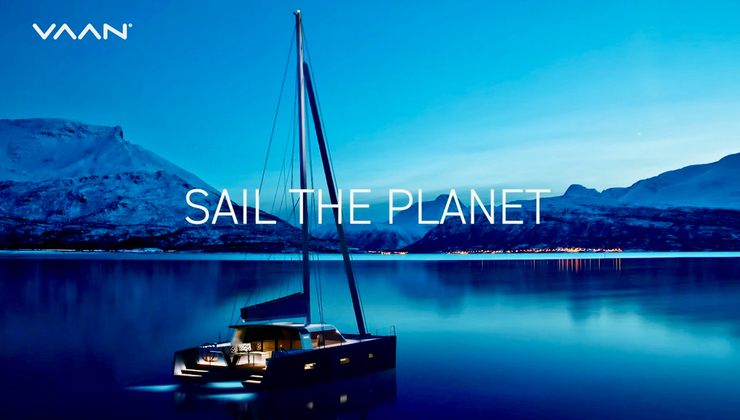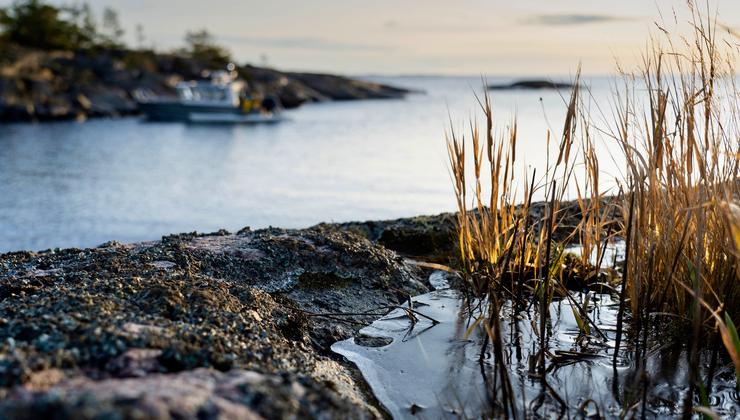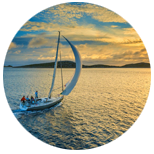Normalt skriver jo alt på dansk, men denne gang har jeg valgt at bringe dette flotte interview fra den Internationael Finn Association som modtaget, på engelsk.
Læs et dejligt, hudløst ærligt og åbent interview om vejen tilbage fra et - i Jonas' øjne mislykket OL i Bejing 2008, til nu at være en dark-horse her i London 2012:
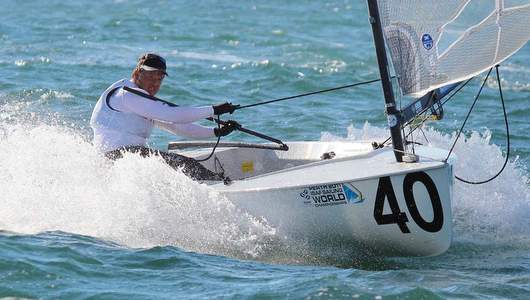
Det har været MEGET hårdt arbejde at komme tilbage i top-form, efter en lang pause. Foto: Int. Finn Ass.
Du kan læse det fulde interview på engelsk, på næste side:
Finn Class Interview: Jonas Høgh-Christensen - third time lucky?
Of all the Finn sailors competing in the 2012 Olympics, Jonas Høgh-Christensen has had one of the toughest returns to form after effectively stepping out of the class for three years following a disappointing 2008 Olympics. In China he was one of the hot favourites for a medal, but he had a poor start before recovering to finish sixth, but that was still a long way from where he wanted to be. Perhaps it was nerves, perhaps it was just bad luck.
So he took some time out, put his sailing career on hold and focussed on another career, in the music business. He returned briefly for the 2009 Finn Gold Cup in Vallensbaek, Denmark, where he stunned the Finn world to win his second Finn world title. Over the next two years he sailed the odd regatta to keep his hand in, until in November 2011 he returned to the class full time for a third crack at an Olympic medal. This could be his best chance yet. He is relaxed, confident and fast. But it has been a physically hard route back to the top.
"It was very, very hard to come back after such a long break. Physically and mentally it was a test of dimensions. My body was so out of shape and getting back to the mental state you need to be in to compete at this level was hard too. My first regatta back in the boat was Hyeres regatta in 2011 and I just wasn't there. I sat down with my coach and made a plan to get back and instantly knew that it would be a hard challenge."
"To make another campaign was not planned and not even really something I had rumbling in my head. I liked sailing at the top level but had decided to move on with my life. In 2010 I was approached by our federation that needed somebody to get some results because of a bad Danish season. I said I needed to test myself to see if it was even a possibility as it was crucial that I had the will to push as hard as needed and that the passion was still there. I tested myself at the 2010 worlds and with a 14th I thought I had both the opportunity to do well again and the will and passion to push hard."
As usual, fitness was the hardest part of the comeback. "I was very out of shape and three years in the music business had set its marks. I was 112 kg and super unfit. Getting back into shape has been hard especially because I have been battling injuries all along the process."
He also feels there has been a major step change in the fitness of the fleet. "I think the whole fleet is fitter, stronger and have improved their technique a lot. But I don't have a lot of pressure as I am not one of the favourites to take a medal. Probably more a dark horse. I think this could end up playing in my favour. But I am fresh and am really pushing hard all the way. I see some sailors that have already burned out. I did the same in 2008 in many ways and have learned from that."
The gear has also moved on. "When I returned it was obvious that the Brits were several steps ahead of everybody on gear. In the first race back in the boat I saw Ben sail a medal race going .3 knots and three degrees higher than everybody else. It made no sense. So we have worked hard to catch up. I did a mast development programme with Concept masts and sails with North. I think we have done well but in this aspect another six months would have done wonders. I think people were pretty surprised when I showed up with a 3DL sail at Sail for Gold."
"I think we have come full circle and will be using a mix of new and old gear. But we did push the bar and I can say we found some magic on the way. What it is will show at the games."
Unfortunately, Jonas broke his mast soon after this interview, so it is still unsure what he will be using during the Olympics.
He updated us. "I was training in 20-25 knots. I am not sure what happened, but when I got in I could see that my mast had cracked half way around 25 cm above the gooseneck. I liked that mast and had a good reason to believe that it gave me an egde. We are in the process of fixing it and getting a lot of help from Luca. So a big thanks to him.
The mast will be ready today and we are planning on sailing with it to see if the repair will hold and if the mast bend has changed."
"I have my 2001 Wilke mast as back-up. I have used this mast forever and it has always done well. I have won two worlds and had some top four finishes with that mast so it is not a bad mast. Time will tell what will happen."
Like other sailors Jonas has focussed on quality training rather than regattas in the run up to the Games. "I think too many events run you down. Focus on fitness is key and a regatta can disrupt a good fitness programme. To do well you need to be fresh and this season you could do regattas back to back. For me a focus on keeping fresh and work on the gear was more important than racing. If I couldn't get on the same page as Ben I would be racing for secondary positions."
Looking back at the 2008 Olympics Jonas was clearly unhappy with his performance, but in hindsight feels there were some positives. "I think it was a hard regatta and luck was not on my side. When I finally got back on form the wind died and we didn't race. Going in to the event I felt really prepared but I was also nervous as I was one of the favourites. Sometimes you just don't have the week and that happened to me. Looking back there is a couple of things I would change but the experience has been a gift for this Games."
"My preparation for 2012 has been much shorter, though besides that not too different. Get the equipment right, be in shape, be sharp. Of you go and do your best."
To win a medal the top ten will have to face the toughest challenge yet in an Olympic Games, a medal race in front of thousands of spectators on the inshore Nothe course. "The medal race on the Nothe course might play for a bit more risk induced race. But it is the same for all so it shouldn't be a problem. You just have to prepare for it as best as possible. Gear choice is less important here. The medal race is 30 minutes and it is most likely going to be in very shifty conditions, so gear will not play a big part."
For Jonas the Olympics is all about the personal challenge. "It is the pinnacle of our sport and one of the highest challenges you can set for yourself. I like to push myself to the edge and see how far I can go. I want to win and there is no better place to do it."
"Setting short term goals and trying to have fun with it is the key. I do miss the days where the bar in Hyeres was full of sailors halfway during the event. You don't see that any more. It's a shame. The social aspect is important. But these days, you have got to be a hard person. The ability to absorb pain and stress and come out on top is important. Being organised and not settling for second best are also elements that will help.".
Jonas sees the development of the class in recent years as a big positive. "I love the Finn and think it has gotten a revival with the new physical aspects. It is for sure the hardest boat on the Olympic programme. Real athletes pushing super hard. Next time around there will be no old school sailors with a bit too much fat. They will be fit, tall and young. With that said it looks like my time is up. So unless something radical happens it will most likely be my last Finn event. What life brings is hard to know. I would love to do the AC and think I have something to bring to the table but it is a hard place to get in."
Having spent all his Olympic career in the Finn, he has strong views on the direction the sport should take. "I think you have to identify what is interesting and what drives young people. Continuity is also important. It is hard to build a talent pool if the sport is out next time around. It becomes too risky to invest time and money. Keep it physical, get better coverage, focus on the internet."
Will he ever sail a Finn again after the Olympics? "Well, never say never, but it is unlikely. Let the young guns take over."
Favourites? "Hard pick. It all depends on the weather. I think there are 10 guys who can do it and only one favourite. Ben, PJ, Zach."
And finally, what is he most looking forward to the most over the next few weeks? "Winning! Maybe too cocky, okay. Seeing the last 10 months hard work come together with me performing my personal best, that will be the biggest satisfaction. I am truly blessed to have gotten another chance to do well at the Olympics and I will do my best to make to most of it."





















